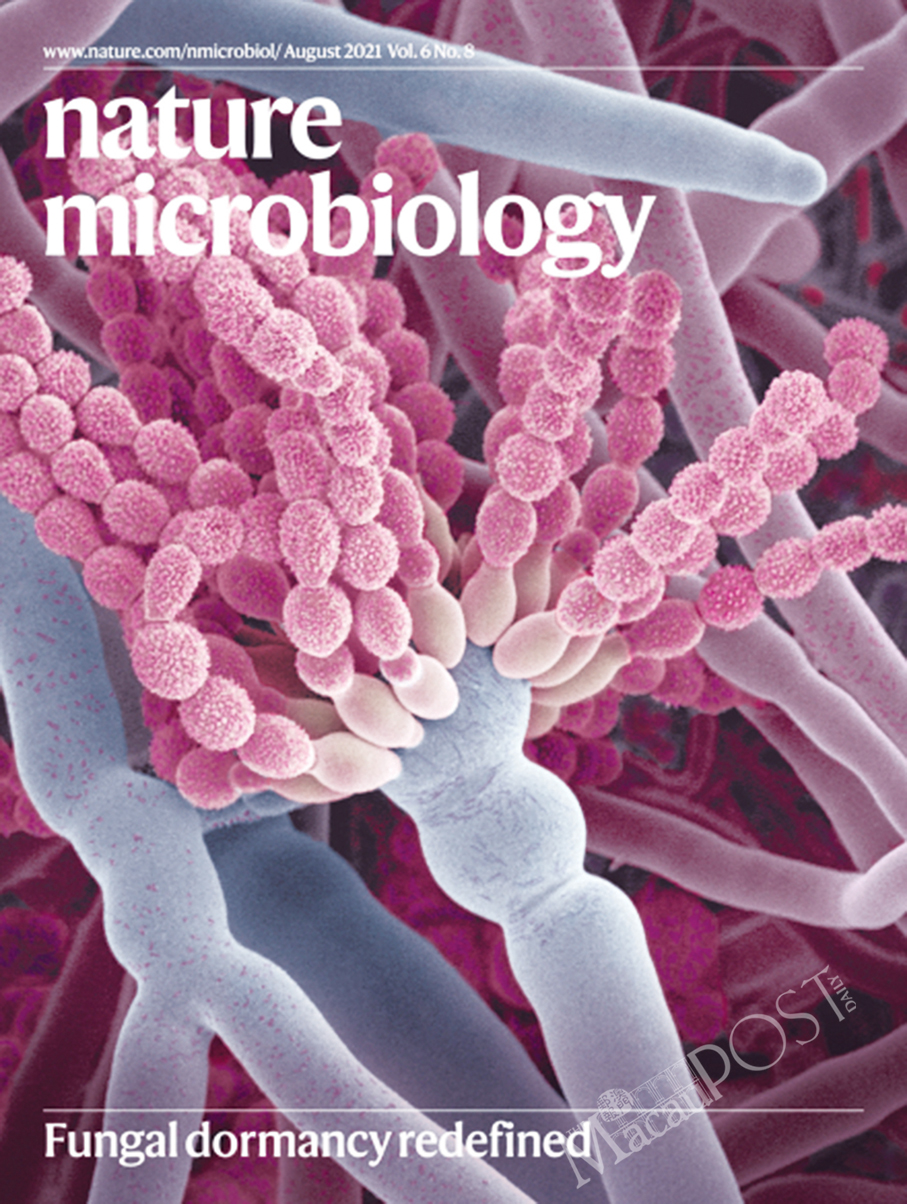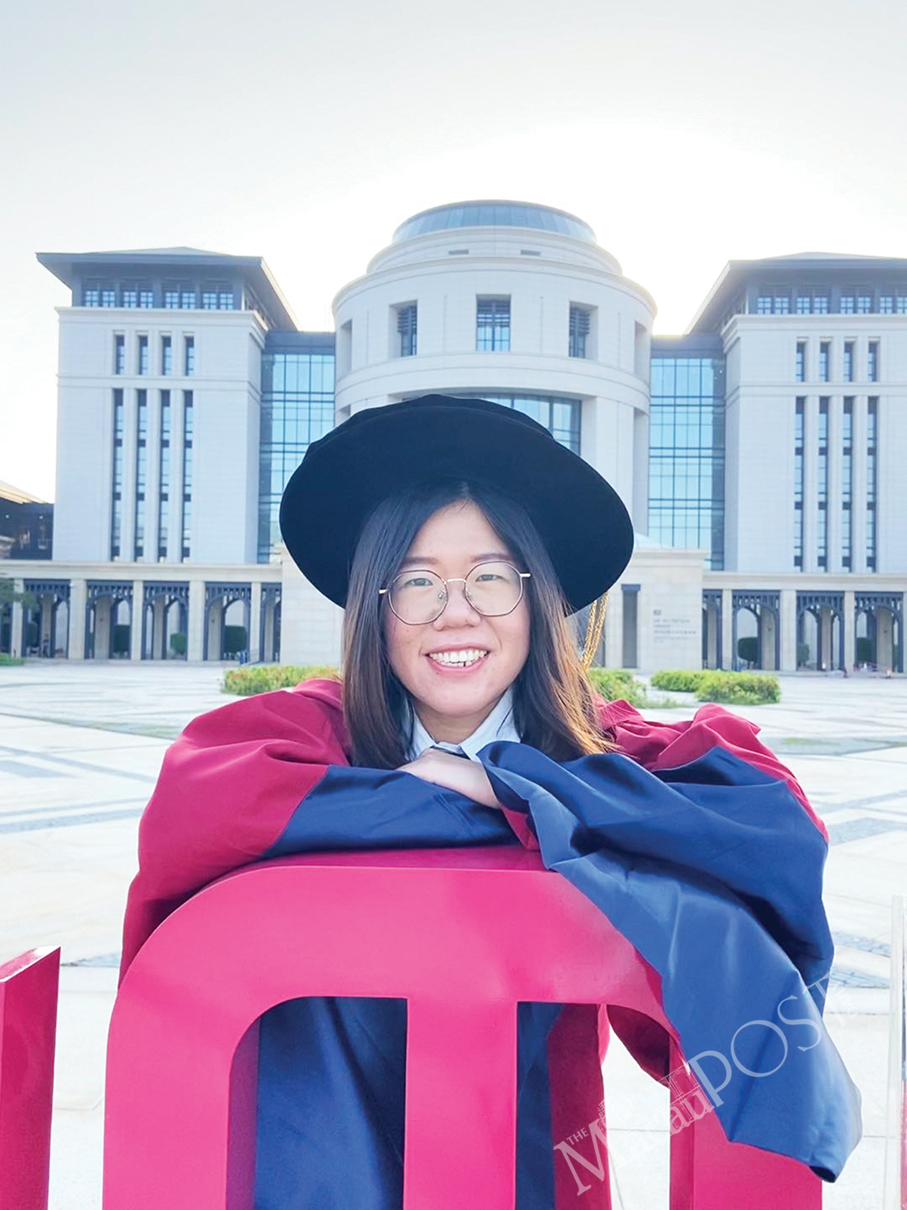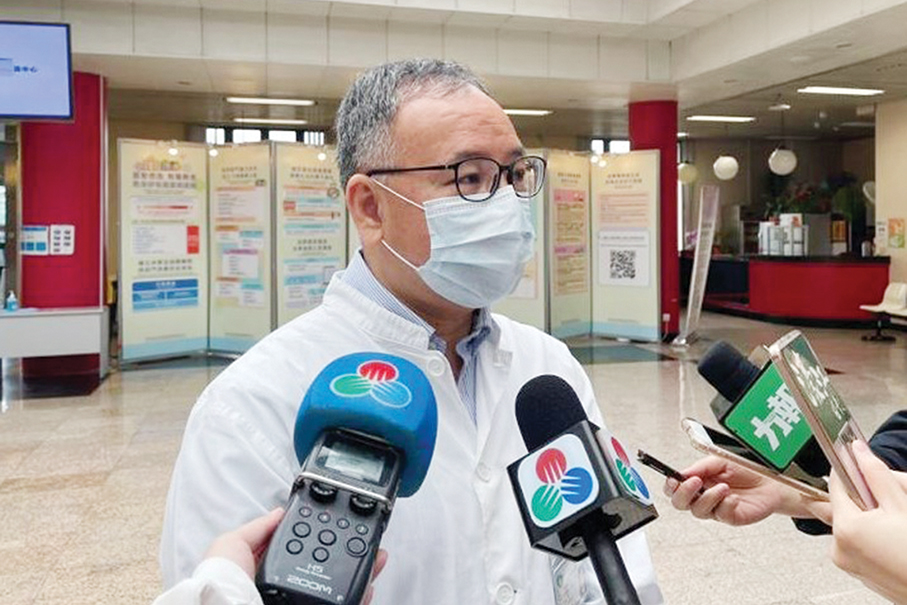A team of researchers from the University of Macau (UM) have made a breakthrough in understanding the biology of fungal spores, which holds promise for protecting immunocompromised people from deadly infections caused by fungal pathogens, the public university said in a statement yesterday.
The team, led by Prof. Chris Wong Koon Ho from the Faculty of Health Sciences, has discovered the dormancy mechanism of fungal spores, which are the main infectious agent of fungal pathogens that can cause deadly infections in humans.
The study has been featured on the cover of nature microbiology.
Fungal spores are the “babies” of fungi and can be found everywhere in the natural environment, the statement points out. Dispersed in the air, spores can survive various stresses and environmental conditions and remain dormant for a long time until favourable conditions are encountered. Life-threatening fungal infections usually affect immunocompromised people, according to the statement.
Although the development of fungal spores is generally understood, how spores achieve the state of dormancy remains unclear. To learn more about this, according to the statement, Wong’s team conducted an experiment to determine whether dormant spores have any transcriptional activities. They found that the so-called “dormant spores” have robust transcriptional activities and can elicit transcriptional responses to the environment, which are similar to those seen in actively growing cells, the statement pointed out.
The findings indicate that fungal spores are not really dormant even after the development process is complete, challenging the common notion about spore dormancy. In addition, contrary to previous belief that biological materials in spores, such as mRNA and protein, originated from the cells of conidiophores, the study has found that fungal spores can synthesize mRNA and protein on their own, the statement underlines.
The team further found that fungal spores establish dormancy after they are separated from the developmental structure upon dispersal to the environment. It also found that spores’ experiences before dispersal (i.e.: before dormancy) could influence their growth, survival, virulence, and toxin production capabilities later after they break dormancy, the statement concludes. – Xinhua, MPD

August 2021 cover of the journal nature microbiology featuring the UM study

Undated file photo of the study’s first author, University of Macau PhD student Wang Fang posing on the UM campus

Undated file photo of UM Prof. Chris Wong Koon Ho, the study’s corresponding author – Photos provided by UM








